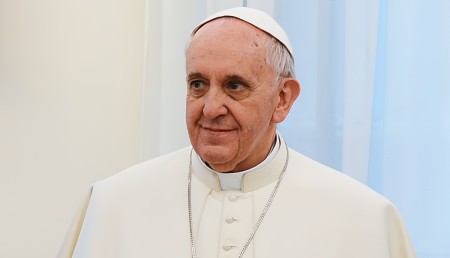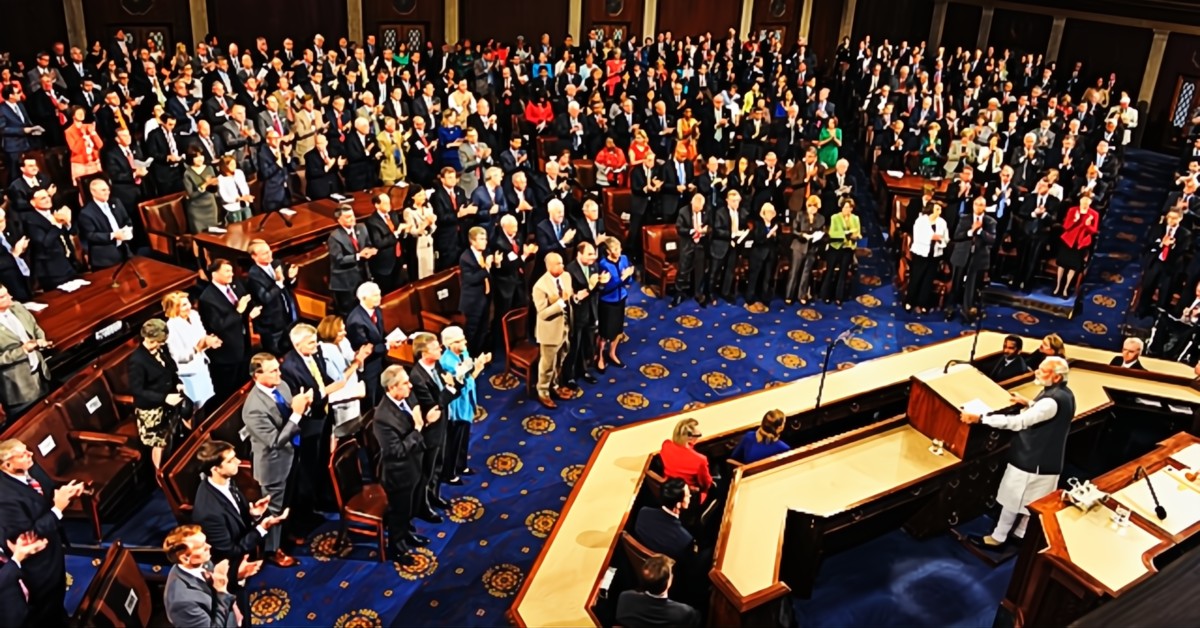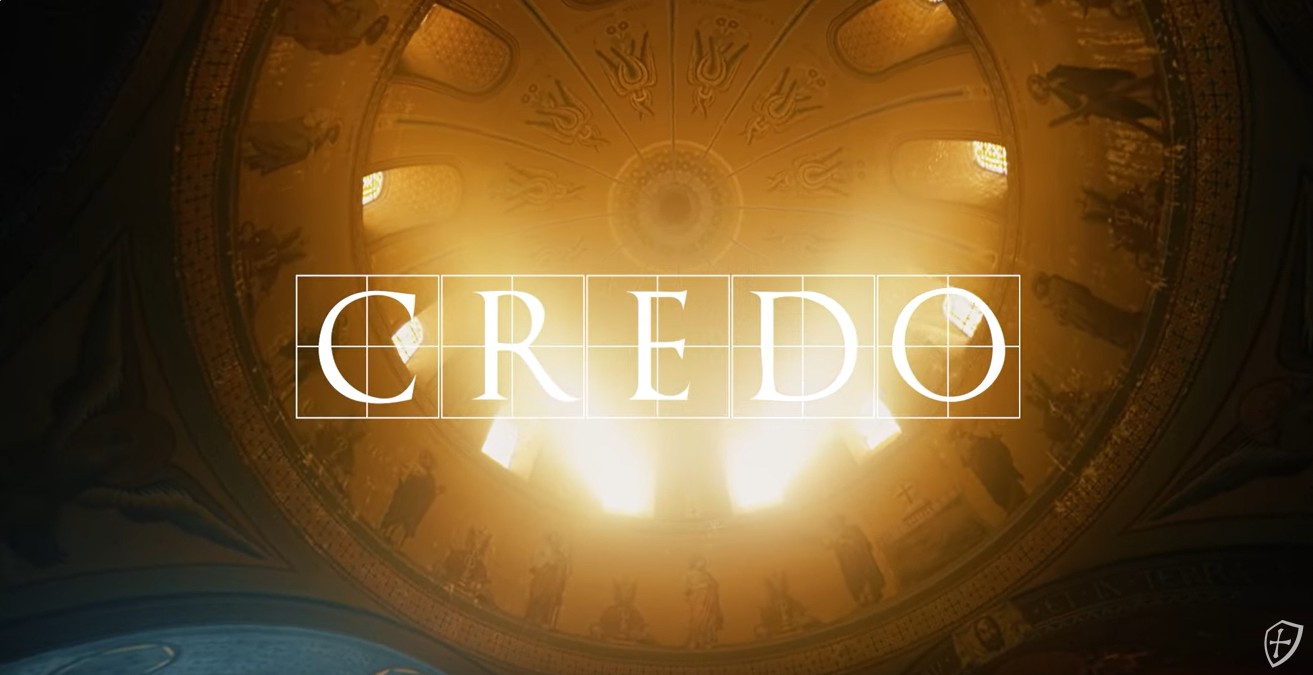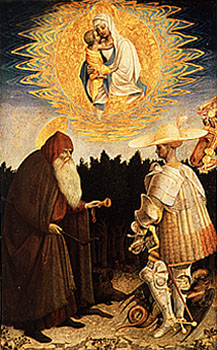Cardinal Rigali, Bishop Murphy Clarify Obligation to Vote Pro-Life
FREE Catholic Classes
Roe v. Wade is a clear case of an "intrinsically unjust law" we are morally obliged to oppose. Reversing it is not a mere political tactic, but a moral imperative for Catholics and others who respect human life.
Highlights
USCCB Pro-Life Activities (www.usccb.org/prolife/)
10/23/2008 (1 decade ago)
Published in Politics & Policy
WASHINGTON, DC (USCCB)- Catholic Online sets forth for our readers the strong, clear and direct Joint Statement issued by Cardinal Justin Rigali, the Chairman of the Committee on Pro-Life Activities and Bishop William Murphy, the Chairman of the Committee on Domestic Justice and Human Development of the United States Conference of Catholic Bishops which rejects the false dichotomy suggested by some, calling for both opposing Roe v Wade and working to provide further social support for women and children:
"In Forming Consciences for Faithful Citizenship (2007), the Catholic bishops of the United States urged Catholic voters to form their consciences in accord with the Church's moral teaching. We emphasized that: "Both opposing evil and doing good are essential obligations" (No. 24). Unfortunately, there seem to be efforts and voter education materials designed to persuade Catholics that they need only choose one approach: either opposing evil or doing good. This is not an authentically Catholic approach.
Some argue that we should not focus on policies that provide help for pregnant women, but just focus on the essential task of establishing legal protections for children in the womb. Others argue that providing lifeaffirming support for pregnant women should be our only focus and this should take the place of efforts to establish legal protections for unborn children. We want to be clear that neither argument is consistent with Catholic teaching. Our faith requires us to oppose abortion on demand and to provide help to mothers facing challenging pregnancies.
In 1973 the U.S. Supreme Court's Roe v. Wade decision knocked down laws against abortion in all 50 states, fabricating a constitutional "right" to abortion that continues to haunt and divide our society. Within two days of that decision, the Catholic bishops rejected it as "bad morality, bad medicine and bad public policy." We called for a comprehensive response: exploring "every legal possibility" for challenging the Court's tragic error and restoring legal safeguards for the right to life of the unborn child; helping to pass laws to "restrict the practice of abortion as much as possible" in the meantime; and educating society to the need to safeguard the child and support "more humane and morally acceptable solutions" for women facing problems during pregnancy.
Recently, some have called on the Church to abandon most of this effort. They say we should accept Roe as a permanent fixture of constitutional law, stop trying to restore recognition for the unborn child's human rights, and confine our public advocacy to efforts to "reduce abortions" through improved economic and social support for women and families.The Catholic community is second to no one in providing and advocating for support for women and families facing problems during pregnancy. Catholic hospitals, charitable institutions, and thousands of pregnancy aid centers, provide life-saving care and compassionate alternatives to the violence of abortion. We have advocated for universal health care coverage, generous family leave policies, increases in the minimum wage, humane welfare policies for women who are pregnant or caring for young children,expanded funding for WIC and other nutrition programs, and a federal children's health insurance program that includes coverage for unborn children and their mothers. Because some women still feel pressured by economic hardship and lack of support to resort to abortion, our task in this regard is far from over.
These efforts, however, are not an adequate or complete response to the injustice of Roe v. Wade for several important reasons. First, the Court's decision in Roe denied an entire class of innocent human beings the most fundamental human right, the right to life. In fact, the act of killing these fellow human beings was transformed from a crime into a "right," turning the structure of human rights on its head. Roe v. Wade is a clear case of an "intrinsically unjust law" we are morally obliged to oppose (see Evangelium vitae, nos. 71- 73). Reversing it is not a mere political tactic, but a moral imperative for Catholics and others who respect human life.
Second, the many challenges to the Court's error since 1973 have borne fruit, leading to significant modifications of Roe. Most recently in its ruling on partial-birth abortion, the Court upheld a ban on an abortion procedure for the first time in 35 years, and acknowledged that abortion takes a human life and does serious harm to women.
Third, Roe itself enormously increased the annual number of abortions in our society. The law is a teacher, and Roe taught many women, physicians and others that abortion is an acceptable answer to a wide range of problems. By the same token, even the limited pro-life laws allowed by the Court since Roe have been shown to reduce abortions substantially, leading to a steady decline in the abortion rate since 1980. Bans on public funding, laws requiring informed consent for women and parental involvement for minors, and other modest and widely supported laws have saved millions of lives. Laws made possible by reversing Roe would save many more. On the other hand, this progress could be lost through a key pro-abortion proposal,the "Freedom of Choice Act," which supporters say would knock down hundreds of current pro-life laws and forbid any public program to "discriminate" against abortion in providing services to women.
Providing support for pregnant women so they choose to have their babies is a necessary but not sufficient response to abortion. Similarly, reversal of Roe is a necessary but not sufficient condition for restoring an order of justice in our society's treatment of defenseless human life. This act by itself would not automatically grant legal protection to the unborn. It would remove an enormous obstacle to such protection,so the people of the United States and their elected representatives in every state could engage in a genuine discussion of how to save unborn children and their mothers from the tragedy of abortion. Both approaches to opposing abortion are essential. By protecting the child's life to the maximum degree possible, improving life-affirming support for pregnant women, and changing the attitudes and prejudices imposed on many women to make them see abortion as an acceptable or necessary solution, we will truly help build a culture of life.
In light of a wide range of attempts to interpret Church teaching or imply that outside materials represent the teaching of the Church, we wish to affirm that Forming Consciences for Faithful Citizenship is the teaching that has been approved by the body of bishops of the United States. As we explained in that statement, "We encourage Catholics to seek those resources that are authorized by their own bishops, their state Catholic conferences, and the United States Conference of Catholic Bishops."
Join the Movement
When you sign up below, you don't just join an email list - you're joining an entire movement for Free world class Catholic education.

-

-
Mysteries of the Rosary
-
St. Faustina Kowalska
-
Litany of the Blessed Virgin Mary
-
Saint of the Day for Wednesday, Oct 4th, 2023
-
Popular Saints
-
St. Francis of Assisi
-
Bible
-
Female / Women Saints
-
7 Morning Prayers you need to get your day started with God
-
Litany of the Blessed Virgin Mary
Pope Francis Suffers Fall: A Look at Papal Health and Succession
-

The Erosion of Civility in Congressional Hearings: A Call for Professional Decorum
-

Bishop Strickland and Others Defend Apostolic Tradition in New Documentary on the Church's Enduring ...
-
At Least 25 Dead as Wildfires Continue to Rage Across Los Angeles, Arson Investigations Underway
-
Australian Woman Charged with Torture After Exploiting Child for Donations
Daily Catholic
 Daily Readings for Friday, January 17, 2025
Daily Readings for Friday, January 17, 2025 St. Anthony the Abbot: Saint of the Day for Friday, January 17, 2025
St. Anthony the Abbot: Saint of the Day for Friday, January 17, 2025 Prayer for a Blessing on the New Year: Prayer of the Day for Tuesday, December 31, 2024
Prayer for a Blessing on the New Year: Prayer of the Day for Tuesday, December 31, 2024- Daily Readings for Thursday, January 16, 2025
- St. Fursey: Saint of the Day for Thursday, January 16, 2025
- St. Theresa of the Child Jesus: Prayer of the Day for Monday, December 30, 2024
![]()
Copyright 2024 Catholic Online. All materials contained on this site, whether written, audible or visual are the exclusive property of Catholic Online and are protected under U.S. and International copyright laws, © Copyright 2024 Catholic Online. Any unauthorized use, without prior written consent of Catholic Online is strictly forbidden and prohibited.
Catholic Online is a Project of Your Catholic Voice Foundation, a Not-for-Profit Corporation. Your Catholic Voice Foundation has been granted a recognition of tax exemption under Section 501(c)(3) of the Internal Revenue Code. Federal Tax Identification Number: 81-0596847. Your gift is tax-deductible as allowed by law.







 Daily Readings for Friday, January 17, 2025
Daily Readings for Friday, January 17, 2025 St. Anthony the Abbot: Saint of the Day for Friday, January 17, 2025
St. Anthony the Abbot: Saint of the Day for Friday, January 17, 2025 Prayer for a Blessing on the New Year: Prayer of the Day for Tuesday, December 31, 2024
Prayer for a Blessing on the New Year: Prayer of the Day for Tuesday, December 31, 2024


